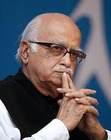L.K. Advani's Blog, page 15
July 14, 2012
OUTSTANDING U.S. HISTORIAN CALLS BRITISH RULE IN INDIA GREATEST CRIME IN ALL HISTORY
I was a school boy in Karachi when I first heard the name of Katherine Mayo, notorious author of a viciously anti-India book, titled Mother India. Mahatma Gandhi had condemned the book as a “gutter inspector’s report”!
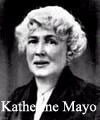 Mayo was an American journalist who wrote this book around 1927, stoutly defending British Rule in India. She also vehemently attacked Hindu society, religion and culture.
Mayo was an American journalist who wrote this book around 1927, stoutly defending British Rule in India. She also vehemently attacked Hindu society, religion and culture.
About the same time, I heard of two other American authors who had written almost as passionately in favour of India and against the Britishers. The first of these, Will Durant, had the reputation of being one of the world’s greatest historians, and philosophers. The other was a Church leader, Rev. Jabez Thomas Sunderland.
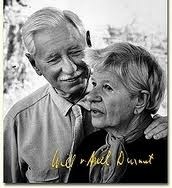 Will Durant’s life time achievement is his eleven volume series “The Story of Civilisation” a monumental set of volumes written in collaboration with his wife Ariel. Will and Ariel were awarded the Pulitzer Prize for General Non-fiction in 1968.
Will Durant’s life time achievement is his eleven volume series “The Story of Civilisation” a monumental set of volumes written in collaboration with his wife Ariel. Will and Ariel were awarded the Pulitzer Prize for General Non-fiction in 1968.
Will Durant’s other largely popular work, The Story of Philosophy, brought philosophy to the lay person.
On his first visit to India in 1896, Sunderland met Justice Mahadev Govind Ranade and Bengali Nationalist Surendra Nath Bannerji. He was the first American to attend an annual session of the Indian National Congress.
I recall reading around 1945 a very powerful book of his, India in Bondage. Gandhiji and Rabindra Nath Tagore wrote to him letters of gratitude. The book was banned in India by the British Government.
Not many may be aware that when the British came to India in the eighteenth century this country was politically weak but economically very wealthy.
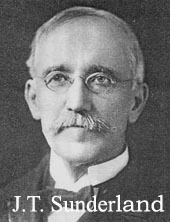 This wealth, wrote Sunderland in the above book, was created by the Hindus’ vast and varied industries.
This wealth, wrote Sunderland in the above book, was created by the Hindus’ vast and varied industries.
“India was a far greater industrial and manufacturing nation than any in Europe or than any other in Asia. Her textile goods – the fine products of her looms, in cotton, wool, linen and silk – were famous over the civilized world; so were her exquisite jewelry and her precious stones cut in every lovely form; so were her pottery, porcelains, ceramics of every kind, quality, color and beautiful shape; so were her fine works in metal – iron, steel, silver and good. She had great architecture – equal in beauty to any in the world. She had great engineering works. She had great merchants, great businessmen, great bankers and financiers. Not only was she the greatest ship-building nation, but she had great commerce and trade by land and sea which extended to all known civilized countries. Such was the India which the British found when they came.
**
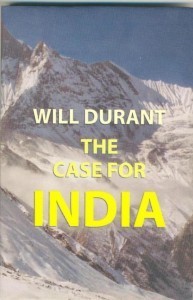 I have, however, come upon lately a short book written by William Durant in 1930 titled “The Case for India”, but which had been out of print for many decades. Strand Book Stall of Mumbai and its Founder T.N. Shanbagh have done signal service to history by procuring a photo copy of Durant’s book from Mohandas Pai of Infosys and having it republished in 2007.
I have, however, come upon lately a short book written by William Durant in 1930 titled “The Case for India”, but which had been out of print for many decades. Strand Book Stall of Mumbai and its Founder T.N. Shanbagh have done signal service to history by procuring a photo copy of Durant’s book from Mohandas Pai of Infosys and having it republished in 2007.
In his introductory note to his “The Case for India”, Durant writes:
“I went to India to help myself visualize a people whose cultural history I had been studying for The Story of Civilisation…
“But I saw such things in India as made me feel that study and writing were frivolous things in the presence of a people-one-fifth of the human race - suffering poverty and oppression bitterer than any to be found elsewhere on the earth. I was horrified. I had not thought it possible that any government could allow its subjects to sink to such misery.
“I came away resolved to study living India as well as the India with the brilliant past; to learn more of this unique Revolution that fought with suffering accepted but never returned; to read the Gandhi of today as well as the Buddha of long ago. And the more I read the more I was filled with astonishment and indignation at the apparently conscious and deliberate bleeding of India by England throughout a hundred and fifty years. I began to feel that I had come upon the greatest crime in all history.” (Emphasis added)
Durant refers extensively to Sunderland’s writings and says that “those who have seen the unspeakable poverty and physiological weakness of the Hindus today will hardly believe that it was the wealth of eighteenth century India which attracted the commercial pirates of England and France”.
It was this wealth that the East India Company proposed to appropriate, Durant says. Already in 1686 the East India Company’s Directors declared their intention to “establish …a large, well-grounded, sure English dominion in India for all time to come”.
In 1757, Robert Clive defeated the Rajah of Bengal at Plassey and declared his Company the owner of the richest province in India. Durant adds: Clive added further territory by forging and violating treaties, by playing one native prince against another, and by generous bribes given and received. Four million dollars were sent down the river to Calcutta in one shipment. He accepted “presents” amounting to $ 1,170,000 from Hindu rulers dependent upon his favour and his guns; pocketed from them, in addition, an annual tribute of $ 140,000; took to opium, was investigated and exonerated by Parliament, and killed himself. “When I think”, he said, “of the marvelous riches of that country, and the comparatively small part which I took away, I am astonished at my own moderation”. Such were the morals of the men who proposed to bring civilization to India.
India-analysts often talk very disparagingly about India’s caste-system. Will Durant, however, used the casteist metaphor to substantiate his condemnation of British dominion over India as the greatest crime in all history.
Under sub-heading “The Caste System in India” Durant writes :
“The present caste system in India consists of four classes: the real Brahmans i.e. the British bureaucracy; the real Kshatriyas i.e. the British army; the real Vaisyas i.e. the British traders; and the real Sudras and Untouchables i.e. the Hindu people.”
After dealing with the first three castes the author writes:
“The final element in the real caste system of India is the social treatment of the Hindus by the British. The latter may be genial Englishmen when they arrive, gentlemen famous as lovers of fair play; but they are soon turned, by the example of their leaders and the poison of irresponsible power, into the most arrogant and over-bearing bureaucracy on earth. “Nothing can be more striking,” said a report to Parliament, in 1830, “than the scorn with which the people have been practically treated at the hands of even those who were actuated by the most benevolent motives”. Sunderland reports that the British treat the Hindus as strangers and foreigners in India, in a manner “quite as unsympathetic, harsh and abusive as was ever seen among the Georgia and Louisiana planters in the old days of American slavery”.
Durant then quotes Gandhiji saying that the foreign system under which India was governed had reduced Indians to “pauperism and emasculation”.
Durant comments “As early as 1783 Edmund Burke predicted that the annual drain of Indian resources to England without equivalent return would eventually destroy India. From Plassey to Waterloo, fifty-seven years, the drain of India’s wealth to England is computed by Brooks Adams at two-and-a-half to five billion dollars. Macaulay suggested long ago, that it was this stolen wealth from India which supplied England with free capital for the development of mechanical inventions, and so made possible the Industrial Revolution.”
Will Durant wrote his book “The case for India” in 1930. When some time later the book was noticed by Rabindranath Tagore, he wrote an article in the Modern Review of March, 1931 warmly complimenting Will Durant, and Tagore observed: “I was surprised when I noticed in Will Durant’s book a poignant note of pain at the suffering and indignity of the people who are not his kindred. I know that the author will have a small chance of reward in popularity from his readers and his book may even run the risk of being proscribed to us, not having the indecency to deal with an unwholesome calumny against the people who are already humiliated by their own evil fortune. But he, I am sure, has his noble compensation in upholding the best tradition of the West in its championship of freedom and fair play.”
TAILPIECE
William Durant and Ariel Durant shared a love story as remarkable as their scholarship. In October, 1981, William fell ill, and was taken to the hospital. After he was hospitalized, Ariel stopped eating. On October 25, she died. When William learnt that Ariel had died, he passed away on November 7.
L.K. Advani
New Delhi
15 July, 2012

July 9, 2012
यदि सऊदी अबू जिंदाल को सौंप सकते हैं, तो क्यों नहीं पाक दाऊद इब्राहिम को सौंप देता?
पिछले सप्ताह नई दिल्ली की यात्रा पर एक विशिष्ट अतिथि पाकिस्तान के विदेश सचिव जलील अब्बास जिलानी आए थे। पूर्व में वह नई दिल्ली स्थित पाकिस्तानी उच्चायोग में काम कर चुके हैं और वह यहां मिशन के उप प्रमुख रहे हैं। श्री जिलानी, भारत में नव नियुक्त पाकिस्तानी उच्चायुक्त सलमान बशीर सहित अनेक अन्य पाकिस्तानी अधिकारियों के साथ मेरे आवास पर मिलने आए। पाक अधिकारीगण लगभग एक घंटे तक वहां रहे और भारत-पाक सम्बन्धों से जुड़े अनेक मुद्दों पर खुलेपन और स्पष्टता से बातचीत हुई।
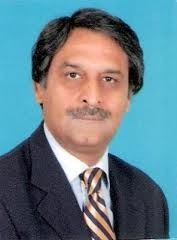 पाकिस्तानी विदेश सचिव ने भारत और पाकिस्तान के बीच सद्भावना और सम्बंधों को सामान्य बनाने में एनडीए सरकार के किए गए गंभीर प्रयासों की भरपूर प्रशंसा की। मैंने उनको कहा कि हमें सर्वाधिक ज्यादा खेद इसको लेकर है कि इस्लामाबाद मे सार्क सम्मेलन के बाद जनरल मुशर्रफ और श्री अटल बिहारी वाजपेयी द्वारा जारी संयुक्त वक्तव्य जिसमें कहा गया था कि पाकिस्तान अपने देश के किसी हिस्से या अपने नियंत्रण वाले किसी क्षेत्र को भारत के विरुध्द आतंकवादी अभियानों के लिए उपयोग नहीं होने देगा-का ईमानदारी से पालन नहीं हो रहा।
पाकिस्तानी विदेश सचिव ने भारत और पाकिस्तान के बीच सद्भावना और सम्बंधों को सामान्य बनाने में एनडीए सरकार के किए गए गंभीर प्रयासों की भरपूर प्रशंसा की। मैंने उनको कहा कि हमें सर्वाधिक ज्यादा खेद इसको लेकर है कि इस्लामाबाद मे सार्क सम्मेलन के बाद जनरल मुशर्रफ और श्री अटल बिहारी वाजपेयी द्वारा जारी संयुक्त वक्तव्य जिसमें कहा गया था कि पाकिस्तान अपने देश के किसी हिस्से या अपने नियंत्रण वाले किसी क्षेत्र को भारत के विरुध्द आतंकवादी अभियानों के लिए उपयोग नहीं होने देगा-का ईमानदारी से पालन नहीं हो रहा।
मैंने उन्हें बताया कि आज पाकिस्तान में अनेक आतंकवादी संगठन सक्रिय है। इसमें कोई संदेह नहीं कि आतंकवादियों के हाथों पाकिस्तान में मरने वाले लोगों की संख्या भारत में मरने वाले लोगों की संख्या से ज्यादा है। और इसलिए भारत सरकार और यहां के लोग इसके प्रति सचेत हैं कि आज इस्लामाबाद अपनी ही सीमाओं में आतंकवाद से अति सक्रियता से लड़ रहा है। लेकिन हमारे यहां यह मत है कि यद्यपि पाकिस्तान तहरीफ-ए-तालिबान-ए-पाकिस्तान जैसे आतंकवादी संगठनों से जूझ रहा है जिन्होंने पाकिस्तान को अपना निशाना बनाया हुआ है, लेकिन यह साथ ही लश्करे-तोयबा और हिजबुल मुजाहिदीन जैसे संगठनों जिनका निशाना भारत बना हुआ है, को सहायता देना जारी रखे हुए है।
और इससे भी ज्यादा तकलीफदेह यह है कि आतंकवाद के मुद्दे पर हमारे बीच जारी तनाव इस तथ्य को लेकर भी है कि पाकिस्तान ने दाऊद इब्राहिम और टाइगर मेनन जैसे घोषित आतंकवादियों को आज भी पाकिस्तान में सरंक्षण दिया हुआ है। यदि सऊदी अरब का अनुसरण कर पाकिस्तान दाऊद इब्राहिम को भारत को सौंप सके तो इससे पाकिस्तान के प्रति भारतीय जनमत का नजरिया रातोंरात बदल सकता है।
**
11 जनवरी, 2011 को नई दिल्ली में एम.जे. अकबर की पाकिस्तान पर पुस्तक टिंडरबाक्स लोकर्पित हुई थी। वर्तमान में यह लेखक अमेरिका की यात्रा पर हैं, जहां संयोग से टिडंरबाक्स के अमेरिकी संस्करण का लोकार्पण होना है।
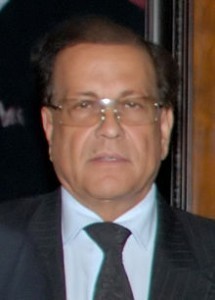 मुझे याद है कि गत् वर्ष भारत में जिस दिन यह पुस्तक लोकार्पित हो रही थी उसी दिन पाकिस्तान में एक जघन्य हत्या हुई। पाकिस्तान के सर्वाधिक आबादी वाले राज्य पंजाब के गवर्नर सलमान तासीर की उनके ही सुरक्षा गार्ड मलिक मुमताज कादरी ने हत्या कर दी। तासीर को यह कीमत एक ईसाई महिला आयशा बीबी जो वर्तमान में ईशनिंदा के आरोपों में मृत्युदण्ड की सजा काट रही, के मुखर समर्थन में बालने के कारण चुकानी पड़ी। तासीर ईशनिंदा कानून बदलने की निडरतापूर्वक वकालत कर रहे थे।
मुझे याद है कि गत् वर्ष भारत में जिस दिन यह पुस्तक लोकार्पित हो रही थी उसी दिन पाकिस्तान में एक जघन्य हत्या हुई। पाकिस्तान के सर्वाधिक आबादी वाले राज्य पंजाब के गवर्नर सलमान तासीर की उनके ही सुरक्षा गार्ड मलिक मुमताज कादरी ने हत्या कर दी। तासीर को यह कीमत एक ईसाई महिला आयशा बीबी जो वर्तमान में ईशनिंदा के आरोपों में मृत्युदण्ड की सजा काट रही, के मुखर समर्थन में बालने के कारण चुकानी पड़ी। तासीर ईशनिंदा कानून बदलने की निडरतापूर्वक वकालत कर रहे थे।
पुस्तक के आमुख में अकबर ने लिखा है:
^^ब्रिटिश भारत के मुस्लिमों ने एक सेकुलर भारत की संभावनाओं को नष्ट करते हुए जिसमें हिन्दू और मुस्लिम सह-अस्तित्व से रह सकते थे को छोड़ 1947 में पृथक होमलैण्ड चुना। क्योंकि वे मानते थे कि एक नए राष्ट्र पाकिस्तान में उनकी जान-माल सुरक्षित रहेगी और उनका मजहब भी सुरक्षित रहेगा। इसके बजाय, छ: दशकों के भीतर ही पाकिस्तान इस धरती पर सर्वाधिक हिंसक राष्ट्रों में एक बन गया है, इसलिए नहीं कि हिन्दू मुस्लिमों की हत्या कर रहे थे अपितु इसलिए कि मुस्लिम मुस्लिमों को मार रहे थे।”
उस दिन अपने अत्यन्त संक्षिप्त भाषण में एम.जे. अकबर ने उसी दिन लाहौर में घटी इस भयंकर त्रासदी का संदर्भ देते हुए कहा:
यदि सलमान तासीर भारत में होते , तो उन्हें मरना नहीं पड़ता!
***
गत् सप्ताह, समाचारपत्रों में कुछ चुनींदा समाचार प्रकाशित हुए जो पूर्व राष्ट्रपति डा. कलाम द्वारा लिखित उनके संस्मरणों पर आधारित पुस्तक टर्निंग प्वाइंट्स से लिए गए हैं। कथित रुप से पुस्तक पर आधारित गुजरात सम्बन्धी समाचार रिपोर्टों को देखकर मैं आश्चर्यचकित रह गया जिसमें वाजपेयीजी को नरेन्द्र मोदी सरकार को बचाने के प्रयासों का दोषी पाया गया है! डा. कलाम की पुस्तक अभी तक रिलीज नहीं हुई है। लेकिन मैं इस पुस्तक के नवें अध्याय जिसका शीर्षक है: ”माई विज़िट टू गुजरात” को पाने में सफल हो गया हूं। डा. कलाम कहते हैं कि राष्ट्रपति का पदभार संभालने के बाद अगस्त, 2002 में उनकी गुजरात यात्रा ”पहला महत्वपूर्ण काम” थी। वह कहते हैं:
”किसी भी राष्ट्रपति ने अभी तक ऐसी परिस्थितियों में इन क्षेत्रों का दौरा नहीं किया होगा, अनेक ने इस मौके पर राज्य की मेरी दौरे की आवश्यकता पर प्रश्नचिन्ह भी लगाए। मंत्रालय और नौकरशाही के स्तर पर यह सुझाया गया कि उस मौके पर मुझे गुजरात जाने का जोखिम नहीं उठाना चाहिए। एक प्रमुख कारण राजनीतिक था। हालांकि मैंने जाने के लिए अपना मन बना लिया था और राष्ट्रपति भवन, राष्ट्रपति के रूप में मेरी इस यात्रा को सफल बनाने में पूरी तरह जुटा था। वाजपेयी ने मुझसे सिर्फ एक प्रश्न पूछा: ”क्या आपको इस समय गुजरात जाना आवश्यक लगता है?” मैंने प्रधानमंत्री को बताया, ‘मैं इसे महत्वपूर्ण कार्य मानता हूं ताकि पीड़ा मिटाने और राहत गतिविधियों को तेज करने तथा दिलों की एकता करने में कुछ काम आ सकूं जोकि मेरा मिशन है, जैसाकि अपने शपथ ग्रहण समारोह सम्बोधन में मैंने जोर भी दिया है।”
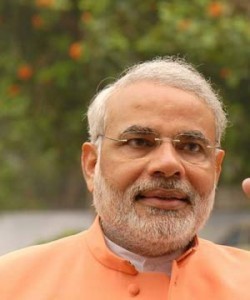 मैं अक्सर महसूस करता हूं कि भारत के राजनीतिक इतिहास में जितना सुनियोजित और घृणापूर्वक गुजरात के मुख्यमंत्री नरेन्द्रभाई मोदी को बदनाम किया गया है उतना किसी और को नहीं। क्या इससे यह रहस्योद्धाटित नहीं होता कि प्रधानमंत्री द्वारा आकस्मिक पूछताछ कि ”क्या इस समय गुजरात जाना आपको आवश्यक लगता है” को लेकर नरेन्द्रभाई और गुजरात के बारे में जानबूझकर एक निंदा प्रयास किया गया कि मानों प्रधानमंत्री राष्ट्रपति को गुजरात जाने से रोकना चाहते थे। डा. कलाम ने उन आशंकाओं का भी संदर्भ दिया है जो उन्होंने सुनी थीं कि उनकी यात्रा का बहिष्कार हो सकता है। डा. कलाम का अनुभव इसके उलट था। मोदी और उनकी सरकार ने उत्साहपूर्वक डा. कलाम के साथ सहयोग किया। तब भी किसी पत्रकार ने इस प्रशंसा को प्रकाशित करना जरूरी नहीं समझा!
मैं अक्सर महसूस करता हूं कि भारत के राजनीतिक इतिहास में जितना सुनियोजित और घृणापूर्वक गुजरात के मुख्यमंत्री नरेन्द्रभाई मोदी को बदनाम किया गया है उतना किसी और को नहीं। क्या इससे यह रहस्योद्धाटित नहीं होता कि प्रधानमंत्री द्वारा आकस्मिक पूछताछ कि ”क्या इस समय गुजरात जाना आपको आवश्यक लगता है” को लेकर नरेन्द्रभाई और गुजरात के बारे में जानबूझकर एक निंदा प्रयास किया गया कि मानों प्रधानमंत्री राष्ट्रपति को गुजरात जाने से रोकना चाहते थे। डा. कलाम ने उन आशंकाओं का भी संदर्भ दिया है जो उन्होंने सुनी थीं कि उनकी यात्रा का बहिष्कार हो सकता है। डा. कलाम का अनुभव इसके उलट था। मोदी और उनकी सरकार ने उत्साहपूर्वक डा. कलाम के साथ सहयोग किया। तब भी किसी पत्रकार ने इस प्रशंसा को प्रकाशित करना जरूरी नहीं समझा!
लालकृष्ण आडवाणी
नई दिल्ली
8 जुलाई, 2012

July 7, 2012
IF SAUDIS CAN SURRENDER ABU JUNDAL, WHY CAN’T PAK HAND OVER DAWOOD IBRAHIM?
A distinguished visitor to New Delhi last week was Jalil Abbas Jilani, Foreign Secretary of Pakistan. He had earlier worked in the Pakistan High Commission in New Delhi and was Deputy Head of the Mission here. Mr. Jilani came to meet me at my residence along with several other Pakistani officials including the newly arrived Pakistan High Commissioner Salman Bashir. The Pak officials were at my place for nearly an hour and there was a free and frank discussion with regard to several issues concerning Indo-Pak relations.
 The Pakistani Foreign Secretary was all praise for the NDA Government’s earnest efforts to restore normalcy and goodwill between India and Pakistan. I said to him that for us the greatest regret has been that the joint statement issued by Gen. Musharraf and Shri A.B. Vajpayee at Islamabad after the SAARC Conference affirming that Pakistan would not allow any part of its country or any area under its control to be used for terrorist operations against India has not been sincerely followed up.
The Pakistani Foreign Secretary was all praise for the NDA Government’s earnest efforts to restore normalcy and goodwill between India and Pakistan. I said to him that for us the greatest regret has been that the joint statement issued by Gen. Musharraf and Shri A.B. Vajpayee at Islamabad after the SAARC Conference affirming that Pakistan would not allow any part of its country or any area under its control to be used for terrorist operations against India has not been sincerely followed up.
Today, I said to him, there are numerous terrorist outfits active in Pakistan. There is no denying that lately more people are dying in Pakistan at the hands of terrorists than they are dying in India. And so, Government of India as well as the people here are conscious that Islamabad is today proactively fighting terrorism within its own borders. But the shared view here also is that while Pakistan is taking head on terrorist groups such as Tahreik-e-Taliban-e-Pakistan (TTP), which has been targeting Pakistan, it continues to provide assistance to groups like Lashkar-e-Toiba (LET) and Hizbul Mujahideen (H.M.) whose target is India.
An even more distressing aspect of continuing Indo-Pak tension on the issue of terrorism is the safe haven Pakistan still provides to declared terrorists and absconders like Dawood Ibrahim. If taking a cue from Saudi Arabia, Pakistan can hand over Dawood Ibrahim to India, it can overnight change public perception in India about Pakistan.
*
On January 11, 2011, M.J. Akbar’s brilliant book on Pakistan titled Tinderbox was released in New Delhi. Presently the author has left for a short trip to the U.S. for a book tour of the country to coincide with the release of the American edition of Tinderbox.
 I remember that on the very day this book was released in India last year, a ghastly murder took place in Pakistan. Salman Taseer, Governor of Pakistan’s most populous state, Punjab, was assassinated by a member of his personal security detail. Taseer had invited the fanatic’s wrath because of his outspoken defence of a Christian woman, Aasia Bibi, at that point of time facing a death penalty on charges of blasphemy. The Punjab Governor had been boldly advocating repeal of blasphemy laws.
I remember that on the very day this book was released in India last year, a ghastly murder took place in Pakistan. Salman Taseer, Governor of Pakistan’s most populous state, Punjab, was assassinated by a member of his personal security detail. Taseer had invited the fanatic’s wrath because of his outspoken defence of a Christian woman, Aasia Bibi, at that point of time facing a death penalty on charges of blasphemy. The Punjab Governor had been boldly advocating repeal of blasphemy laws.
In his introduction to the book, Akbar wrote:
Muslims of British India had opted for a separate homeland in 1947, destroying the possibility of a secular India in which Hindus and Muslims would coexist, because they believed that they would be physically safe, and their religion secure, in a new nation called Pakistan. Instead, within six decades, Pakistan had become one of the most violent nations on earth, not because Hindus were killing Muslims, but because Muslims were killing Muslims.
In his very brief speech that day, M.J. Akbar referred to the grim tragedy that had occurred in Lahore that very day, and affirmed:
If Salman Taseer had been in India, he would not have died !
*
Last week, the media carried some select news items based on a book of memoirs titled ‘Turning Points’, written by former Rashtrapati Dr. Kalam. I was surprised to find reports supposed to be based on the book about Gujarat in which Vajpayeeji was being found fault with for trying to protect the Narendra Modi Government. Dr. Kalam’s book has not been released as yet. But I have been able to procure Chapter Nine of this book captioned “My Visit to Gujarat”. Dr. Kalam says that his visit to Gujarat in August 2002 was his “first major task” after taking over as President. He adds:
“As no president had ever visited an area under such circumstances, many questioned the necessity of my visit to the state at this juncture. At the ministry and bureaucratic level, it was suggested that I should not venture into Gujarat at that point of time. One of the main reasons was political. However, I made up my mind that I would go and Rashtrapati Bhavan was in full swing to make this my first visit as President. Vajpayee asked me only one question, ‘Do you consider going to Gujarat at this time essential ?’ I told the PM, ‘I consider it an important duty so that I can be of some use to remove the pain, and also accelerate the relief activities, and bring about a unity of minds, which is my mission, as I stressed in my address during the swearing-in-ceremony.”
What Dr. Kalam goes on to add after this is even more significant. He writes:
“Many apprehensions were expressed, among them that my visit might be boycotted by the chief minister, that I would receive a cold reception and that there would be agitations from many sides. But, to my great surprise when I landed at Gandhinagar, not only the chief minister, but his whole cabinet colleagues and a large number of legislative members and administrators including the public were present at the airport. I visited twelve areas – three relief camps and nine riot-hit locations where losses were high. Narendra Modi, the chief minister, was with me throughout the visit. In one way, this helped me, wherever I went, the type of petitions and complaints and as he was with me I was able to suggest to him that actions be taken as quickly as possible.”:
 I have often felt that in India’s political history no political leader has been as systematically and viciously maligned as Gujarat Chief Minister Narendra Bhai Modi. Do not these reports also reveal a conscious effort at vilification: the Prime Minister’s casual query “Do you consider going to Gujarat at this time essential” as the P.M. wanting to stop the President from going to Gujarat? Dr. Kalam has also referred to apprehensions he had heard that his visit may be boycotted. Dr. Kalam’s actual experience was totally different. Modi and his government enthusiastically cooperated with Dr. Kalam. Yet no newsman thought it worthwhile to report these complimentary observations of his !
I have often felt that in India’s political history no political leader has been as systematically and viciously maligned as Gujarat Chief Minister Narendra Bhai Modi. Do not these reports also reveal a conscious effort at vilification: the Prime Minister’s casual query “Do you consider going to Gujarat at this time essential” as the P.M. wanting to stop the President from going to Gujarat? Dr. Kalam has also referred to apprehensions he had heard that his visit may be boycotted. Dr. Kalam’s actual experience was totally different. Modi and his government enthusiastically cooperated with Dr. Kalam. Yet no newsman thought it worthwhile to report these complimentary observations of his !
L. K. Advani
New Delhi
8 July, 2012

July 2, 2012
पूर्ववर्ती राष्ट्रपतीय चुनावों के कुछ संस्मरण
मेरा पिछला ब्लॉग चौदहवें राष्ट्रपतीय चुनाव के विषय में था। इस चुनाव में दो प्रमुख प्रतिद्वन्द्वियों, सरकारी पक्ष के प्रणव मुखर्जी और विपक्ष के प्रत्याशी पूर्णो संगमा ने गत् सप्ताह अपने नामांकन पत्र भर दिए हैं।
पूर्ववर्ती चुनावों का संक्षिप्त इतिहास बताते हुए मैंने इंगित किया था कि पूर्व के तेरह चुनावों में 1977 ही एकमात्र ऐसा अवसर था जब राष्ट्रपति निर्विरोध चुना गया।
मैं इस ब्लॉग में 1977 की कुछ यादें ताजा कर रहा हूं जो 19 महीने के आपातकाल के बाद की है; इस आपातकाल के दौरान राष्ट्र को नागरिक स्वतंत्रताओं का निर्दयी दमन देखना पड़ा जैसाकि ब्रिटिश शासन में भी नहीं देखने को मिला था।
स्वतंत्रता के बाद से यह पहला अवसर था जब कांग्रेस पार्टी नई दिल्ली की सत्ता गवां चुकी थी। 1977 के लोकसभाई चुनावों में कांग्रेस की पराजय पूर्णतया अप्रत्याशित थी। आपातकाल में हुई ज्यादतियों से मतदाता इतने गुस्से में थे कि उत्तरी भारत के बहुत बड़े हिस्से में कांग्रेस का सफाया हो गया था।
पंजाब (13), हरियाणा (9), हिमाचल (4), दिल्ली (7), चंडीगढ़ (1), उत्तर प्रदेश (85) और बिहार (54) की कुल 173 लोकसभाई सीटों में से कांग्रेस को एक भी सीट नहीं मिली! मध्यप्रदेश (38) और राजस्थान (25) की कुल 63 सीटों में से कांग्रेस को मात्र 2 सीटें (दोनों प्रदेशों में से एक-एक) प्राप्त हो सकीं।
वह पहला अवसर था जब हम जनसंघ के सदस्य केंद्रीय सरकार में मंत्री बने। सरकार का नेतृत्व श्री मोरारजी देसाई कर रहे थे।
26 जून, 1975 को जिस दिन आपातकाल थोपा गया उस दिन मैं और अटलजी दल बदल विरोधी कानून के बारे में संसदीय समिति की बैठक में भाग लेने हेतु बंगलौर गए हुए थे।
जब 25/26 जून की रात्रि को हजारों की गिरफ्तारियां हो रही थीं (इनमें लोकनायक जयप्रकाश नारायण, श्री मोरारजी देसाई और श्री चन्द्रशेखर शामिल थे), तब अटलजी, मधु दण्डवतेजी, श्याम नन्दन मिश्राजी और मैं, जो बंगलौर में संसदीय समिति की बैठक हेतु आए थे, को 26 जून की सुबह बंगलौर में ही गिरफ्तार कर लिया गया।
आपातकाल के ढाई महीने हमें रोहतक जेल भेजा गया, सिवाय इसके हमारा अधिकांश बंदीकाल बंगलौर सेंट्रल जेल में रहा।
बंगलौर में बंदी के रुप में हमारे वकील के रुप में श्री रामा जायॅस और श्री संतोष हेगड़े थे (दोनों ही बाद में उच्च न्यायालयों के मुख्य न्यायाधीश बने)। बाद में, जब हमारी औपचारिक नजरबंदी याचिका कर्नाटक उच्च न्यायालय में विचारार्थ हेतु आई तब हमारी ओर से श्री एम.सी. छागला, श्री शांति भूषण और श्री वेणु गोपाल जैसी प्रमुख विधिक हस्तियों ने केस लड़ा।
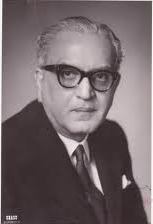
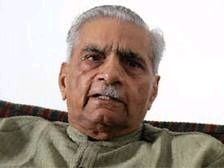
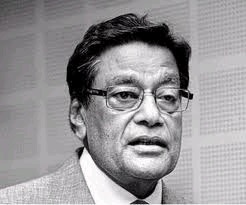
‘आर्गनाइज़र‘ में पत्रकार के रुप में काम करते हुए ही मोरारजीभाई, चन्द्रशेखरजी और डा. लोहिया जैसे वरिष्ठ राजनीतिक नेताओं से मेरा संबंध 1970 में संसद में आने से पहले ही बन चुका था। अत:, जब श्री देसाई ने मुझे अपने मंत्रिमण्डल में सूचना एवं प्रसारण मंत्री बनाया, तो अक्सर वह मुझसे मेरे मंत्रालयों से इतर विषयों पर भी अनौपचारिक रुप से विचार-विमर्श कर लेते थे।
मुझे स्मरण आता है कि उनकी सरकार के शुरुआती दिनों में ही एक बार उन्होंने मुझसे पूछा, ”तुम्हें क्या लगता है कि देश का नया राष्ट्रपति कौन होना चाहिए?”
जब मोरारजीभाई ने देश के राष्ट्रपति के बारे में मेरा मत पूछा तो बंगलौर से मेरा इतना लगाव हो गया था कि प्रधानमंत्री को मेरा स्वाभाविक जवाब था: क्यों नहीं न्यायाधीश श्री के.एस. हेगड़े, जिनकी वरिष्ठता की पीछे कर श्रीमती गांधी ने एक कनिष्ठ न्यायाधीश श्री ए.एन. रे को पदोन्नत कर दिया था। जब श्री रे मुख्य न्यायाधीश थे तभी सर्वोच्च न्यायालय ने अनेक उच्च न्यायालयों द्वारा मीसा बंदियों के पक्ष में दिए गए फैसलों को रद्द कर दिया था। न्यायाधीश श्री एच.आर. खन्ना सर्वोच्च न्यायालय की पीठ में एकमात्र न्यायाधीश थे जिन्होंने इस फैसले के विरुध्द अपनी असहमति दर्ज कराई थी।
मुझे अच्छी तरह स्मरण है कि मोरारजीभाई मेरे मत से सहमत थे। लेकिन उन्होंने कहा कि संजीव रेड्डी यह मानते हैं कि 1969 में कांग्रेस संसदीय बोर्ड द्वारा उन्हें राष्ट्रपति पद का अधिकृत प्रत्याशी चुना गया था, परन्तु कांग्रेस की ही नेता और प्रधानमंत्री द्वारा उन्हें इस पद से वंचित कर एक स्वतंत्र प्रत्याशी श्री वी.वी. गिरी को समर्थन देने में कोई गुरेज नहीं हुई। मोरारजीभाई के निर्णय की न्यायसंगतता को मैं समझ सकता हूं। अत: श्री रेड्डी तब राष्ट्रपति बने और न्यायाधीश हेगडे लोकसभा के स्पीकर।
***
पूर्ववर्ती अधिकांश राष्ट्रपतीय चुनाव संसद सत्र के चलते सम्पन्न हुए।
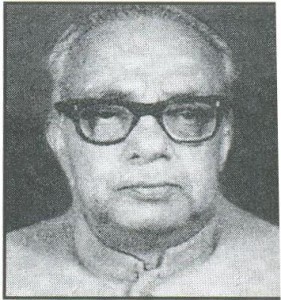 मुझे याद है कि 1974 में छठे राष्ट्रपति चुनाव के दौरान सभी विपक्षी दलों के प्रतिनिधियों की बैठक बुलाई गई ताकि विचार और निर्णय हो सके कि कांग्रेस के प्रत्याशी फखरूद्दीन अली अहमद के विरोध में एक सर्वमान्य विपक्ष का प्रत्याशी कौन हो। मैं इस बैठक में जनसंघ की तरफ से शामिल था। संक्षिप्त विचार-विमर्श के पश्चात् रिव्यूलेशनरी सोशलिस्ट पार्टी (आर.एस.पी.) के श्री त्रिदीब चौधरी के नाम पर सहमति हुई।
मुझे याद है कि 1974 में छठे राष्ट्रपति चुनाव के दौरान सभी विपक्षी दलों के प्रतिनिधियों की बैठक बुलाई गई ताकि विचार और निर्णय हो सके कि कांग्रेस के प्रत्याशी फखरूद्दीन अली अहमद के विरोध में एक सर्वमान्य विपक्ष का प्रत्याशी कौन हो। मैं इस बैठक में जनसंघ की तरफ से शामिल था। संक्षिप्त विचार-विमर्श के पश्चात् रिव्यूलेशनरी सोशलिस्ट पार्टी (आर.एस.पी.) के श्री त्रिदीब चौधरी के नाम पर सहमति हुई।
त्रिदीबजी के साथ राजस्थान, मध्य प्रदेश और उत्तर प्रदेश जहां जनसंघ के अधिकाधिक में विधायक थे, में साथ जाने का मुझे स्मरण हो आ रहा है। इन राज्यों में रेल यात्रा के दौरान त्रिदीबजी ने मुझे कहा कि उनके अन्य वामपंथी साथी साधारणतया आर.एस.एस. (राष्ट्रीय स्वयंसेवक संघ) और जनसंघ के प्रति पूर्वाग्रह रखते हैं, लेकिन वह सदैव आर.एस.एस. को आदर से देखते हैं। एक स्कूली छात्र होने के नाते उन्होंने डॉक्टर हेडगेवार को अक्सर कलकत्ता में अनुशीलन समिति की बैठकों में भाग लेते देखा, जो अंग्रेजों के विरूध्द एक भूमिगत क्रांतिकारी संस्था थी। इस प्रकार की बातचीत हमारे पार्टी सहयोगियों को शिक्षित करने में काफी उपयोगी सिध्द हुई कि देशभक्ति-विभिन्न वैचारिक तत्वों को भी एक डोर में बांधने का शक्तिशाली बंधन हो सकती है।
सन् 1977 में आपातकाल के तुरंत बाद होने वाले सातवें राष्ट्रपतीय चुनाव में कांग्रेस इतनी हतोत्साहित थी कि वह कोई प्रत्याशी तक खड़ा नहीं कर पाई, अत: संजीव रेड्डी निर्विरोध चुने गए।
1974 में विपक्ष के एक सर्वमान्य प्रत्याशी के सम्बन्ध में जनसंघ द्वारा अपनाया गया दृष्टिकोण 1982 में भी दोहराया गया।
विपक्षी दलों के प्रतिनिधियों की प्राथमिक बैठक में यह सुझाया गया कि कांग्रेस पार्टी के ज्ञानी जैल सिंह के मुकाबले किसी वरिष्ठ सांसद के नाम पर विचार किया जाए।
जब किसी ने श्री हीरेन मुखर्जी का नाम लिया तो मैं सबसे पहला था जिसने इस पर तुरंत सहमति दी।
संसद की प्रेस दीर्घा में अक्सर जाने वाले पत्रकार के रूप में सदैव मेरा मानना रहा कि पहली लोक सभा (1952-57) में जो दो सर्वाधिक श्रेष्ठ वक्ता थे वे दो मुखर्जी ही थे - श्यामा प्रसाद और हीरेन। मैं जानता हूं कि दोनों एक-दूसरे का काफी सम्मान करते थे।
अत: इस बैठक में, श्री हीरेन मुखर्जी का नाम सर्वसम्मति से तय हुआ।
दो दिन बाद, सीपीआई के प्रतिनिधि ने बताया कि हीरेन दा का नाम किसी प्रकार मतदाता सूची में दर्ज नहीं है, अत: एक नए नाम पर विचार करने के लिए विपक्ष की बैठक बुलानी पड़ेगी।
उक्त बैठक विधिवत सम्पन्न हुई। इस दूसरी बैठक में मैंने न्यायाधीश एच0आर0 खन्ना का नाम सुझाया। इस नाम पर तुरंत सभी की सहमति बनी।
पश्च्यलेख (टेलीपीस)
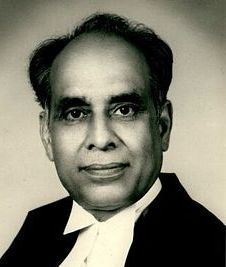 न्यायमूर्ति खन्ना का 95 वर्ष की आयु में 25 फरवरी, 2008 को निधन हो गया। उनके युगांतरकारी निर्णय के बाद ‘दि न्यूयॉर्क टाइम्स‘ ने अपने सम्पादकीय में लिखा था : ”यदि भारत कभी पीछे मुड़कर अपनी स्वतंत्रता और लोकतंत्र को देखेगा, जिसने एक स्वतंत्र राष्ट्र के रूप में पहले अठारह वर्षों में जो गौरवशाली उपलब्धियां प्राप्त की हैं, तो निश्चित रूप से कोई न्यायाधीश न्यायमूर्ति एच.आर. खन्ना का स्मारक सर्वोच्च न्यायालय में अवश्य बनवाएगा।”
न्यायमूर्ति खन्ना का 95 वर्ष की आयु में 25 फरवरी, 2008 को निधन हो गया। उनके युगांतरकारी निर्णय के बाद ‘दि न्यूयॉर्क टाइम्स‘ ने अपने सम्पादकीय में लिखा था : ”यदि भारत कभी पीछे मुड़कर अपनी स्वतंत्रता और लोकतंत्र को देखेगा, जिसने एक स्वतंत्र राष्ट्र के रूप में पहले अठारह वर्षों में जो गौरवशाली उपलब्धियां प्राप्त की हैं, तो निश्चित रूप से कोई न्यायाधीश न्यायमूर्ति एच.आर. खन्ना का स्मारक सर्वोच्च न्यायालय में अवश्य बनवाएगा।”
लालकृष्ण आडवाणी
नई दिल्ली
2 जुलाई, 2012

July 1, 2012
SOME MEMORIES OF EARLIER PRESIDENTIAL ELECTIONS
My last blog was about the Fourteenth Presidential Election. The two principal contestants in this poll, the Government’s nominee, Pranab Mukherji, and the Opposition’s nominee, Purno Sangma, have filed their nominations last week.
Tracing briefly the history of the earlier elections, I had pointed out that in all the earlier thirteen elections, the only occasion when the President was elected unopposed was in 1977.
I am reminiscing in this blog about 1977, a year that came in the wake of a 19-month Emergency, an Emergency during which the nation had experienced ruthless suppression of civil liberties not seen even during British rule.
It was also the first time since independence that the Congress Party had lost power in New Delhi. The debacle suffered by the Congress Party in the Lok Sabha election of 1977 was totally unprecedented. The voters were so angry with the Emergency excesses that in large areas of North India the Congress drew a complete blank.
In Punjab (13 seats), Haryana (9), Himachal (4), Delhi (7), Chandigarh (1), Uttar Pradesh (85) and Bihar (54), out of a total of 173 Lok Sabha seats, the Congress got not a single seat! In Madhya Pradesh (38) and Rajasthan (25) out of 63 seats, the Congress secured just 2 (one each in these two major states)
That was also the first time that we of the Jana Sangh became ministers in the Union Government. This Government was headed by Shri Morarjibhai Desai.
Around the 26th of June, 1975, the day on which the Emergency was clamped on the country, Atalji and I had gone to Bangalore to attend the meeting of a Parliamentary Committee considering the Anti-Defection law.
While thousands were arrested on 25/26 June night (and these included Loknayak Jaya Prakash Narain, Shri Morarji Desai and Shri Chandra Shekhar), Atalji, Madhu Dandavateji, Shyam Nandanji Mishra and I who had come to Bangalore for this Parliamentary Committee meeting were arrested in Bangalore on 26th June morning.
Except for two and a half months in the earlier months of the Emergency when we were transferred to Rohtak, in Haryana, we spent most of our period of detention in the Bangalore Central Jail.
As detenus in Bangalore, we had as our counsel Shri Rama Jois and Shri Santosh Hegde (both of whom later became Chief Justices of High Courts). Later on, when our formal Habeas Corpus petitions were taken up for consideration by the Karnataka High Court we had the honour to be represented by such eminent legal luminaries as Shri M.C. Chagla, Shri Shanti Bhushan and Shri Venugopal.



As a journalist working in the Organiser I had been interacting a lot with senior political leaders like Morarjibhai, Chandra Shekharji and Dr. Lohia even before coming to Parliament which was only in 1970. So, when Shri Desai chose to include me in his Cabinet and entrusted me the Information and Broadcasting portfolio, he would often discuss with me informally issues not related to my official responsibility.
I recall Morarjibhai once asking me during the very early days of his government: “Who do you think should be the new Rashtrapati of the country ?”.
When Morarji Bhai sought my opinion about who should be the country’s President, I had by then become so much at home in Bangalore that my natural response to the Prime Minister was: Why not Justice Shri K.S. Hegde, whom Smt. Gandhi had had superseded by a junior judge, Justice Shri A.N. Ray? It was Shri Ray who had been Chief Justice when the Supreme Court quashed the verdicts of numerous High Courts in favour of MISA detenus. Justice Shri H.R. Khanna was the only dissenting judge on the Supreme Court Bench.
I well remember Morarji Bhai was in agreement with my opinion. But he said that Sanjiva Reddy strongly feels that in 1969 even though he had been chosen the official candidate by the Congress Parliamentary Board, he had been cheated of Presidentship by the Congress’ own leader and Prime Minister who felt no qualms backing an independent, Shri V.V. Giri. I could see that there was justification in Morarji Bhai’s stand. It was thus that Shri Reddy became Rashtrapati and Justice Hegde became Lok Sabha Speaker.
***
Most of the earlier presidential elections took place while the parliament session was on.
 I remember a meeting of all opposition party representatives convened during the Sixth Presidential Election of 1974 to discuss and decide who could be an agreed opposition candidate against Congress’ Fakhruddin Ali Ahmed. I represented the Jana Sangh at this meeting. After a brief discussion, the name of Shri Tridib Chaudhuri of the Revolutionary Socialist Party was agreed upon.
I remember a meeting of all opposition party representatives convened during the Sixth Presidential Election of 1974 to discuss and decide who could be an agreed opposition candidate against Congress’ Fakhruddin Ali Ahmed. I represented the Jana Sangh at this meeting. After a brief discussion, the name of Shri Tridib Chaudhuri of the Revolutionary Socialist Party was agreed upon.
I recall accompanying Tridibji to Rajasthan, Madhya Pradesh and Uttar Pradesh where the Jana Sangh had a sizable block of MLAs. Travelling together on train to these states, Tridibji said to me that while his other leftist colleagues were generally hostile to the RSS, and so to the Jana Sangh as well, he had always held RSS in high esteem. As a schoolboy, he had often seen Dr. Hedgewar come to Calcutta to attend meetings of the Anushilan Samiti, an underground revolutionary body preparing ground against the Britishers. Interactions of this kind have proved very useful to educate our party colleagues that patriotism can be a powerful bond to bring together even ideologically disparate elements.
The Seventh Election was that of 1977 in which because of its post-Emergency demoralization the Congress did not even put up a candidate, so that Sanjiva Reddy was elected unopposed.
The approach Jana Sangh adopted when deciding on an agreed opposition candidate for President in 1974 was repeated in 1982 as well.
At the preliminary meeting of opposition party representatives it was suggested: let us think of a senior parliamentarian who may be put up against Congress Party’s Giani Zail Singh. When some one mentioned Shri Hiren Mookerji, I was the first to endorse it immediately.
It had always been my view as an occasional visitor to the press gallery of Parliament that the two most outstanding orators in the First Lok Sabha (1952-1957) were the two Mukherjis – Syama Prasad and Hiren. Both respected each other, I knew.
At this meeting, thus, Shri Hiren Mookherji’s name was unanimously decided.
Two days later, however, CPI representatives reported back that Hiren Da’s name was somehow missing in the electoral roll, and so a fresh opposition meeting had become necessary to select a new name.
The meeting solicited was duly held. It was at this second meeting that I suggested Justice H.R. Khanna’s name. Again, the name was readily accepted.
TAILPIECE
 Justice Khanna passed away on 25 February 2008, at the age of 95. In its editorial after he delivered his landmark judgment, The New York Times had written: ‘If India ever finds its way back to the freedom and democracy that were proud hallmarks of its first 18 years as an independent nation, someone will surely erect a monument of Justice HR Khanna of the Supreme Court.’
Justice Khanna passed away on 25 February 2008, at the age of 95. In its editorial after he delivered his landmark judgment, The New York Times had written: ‘If India ever finds its way back to the freedom and democracy that were proud hallmarks of its first 18 years as an independent nation, someone will surely erect a monument of Justice HR Khanna of the Supreme Court.’
L.K. ADVANI
New Delhi
July 2, 2012

L.K. Advani's Blog
- L.K. Advani's profile
- 10 followers


